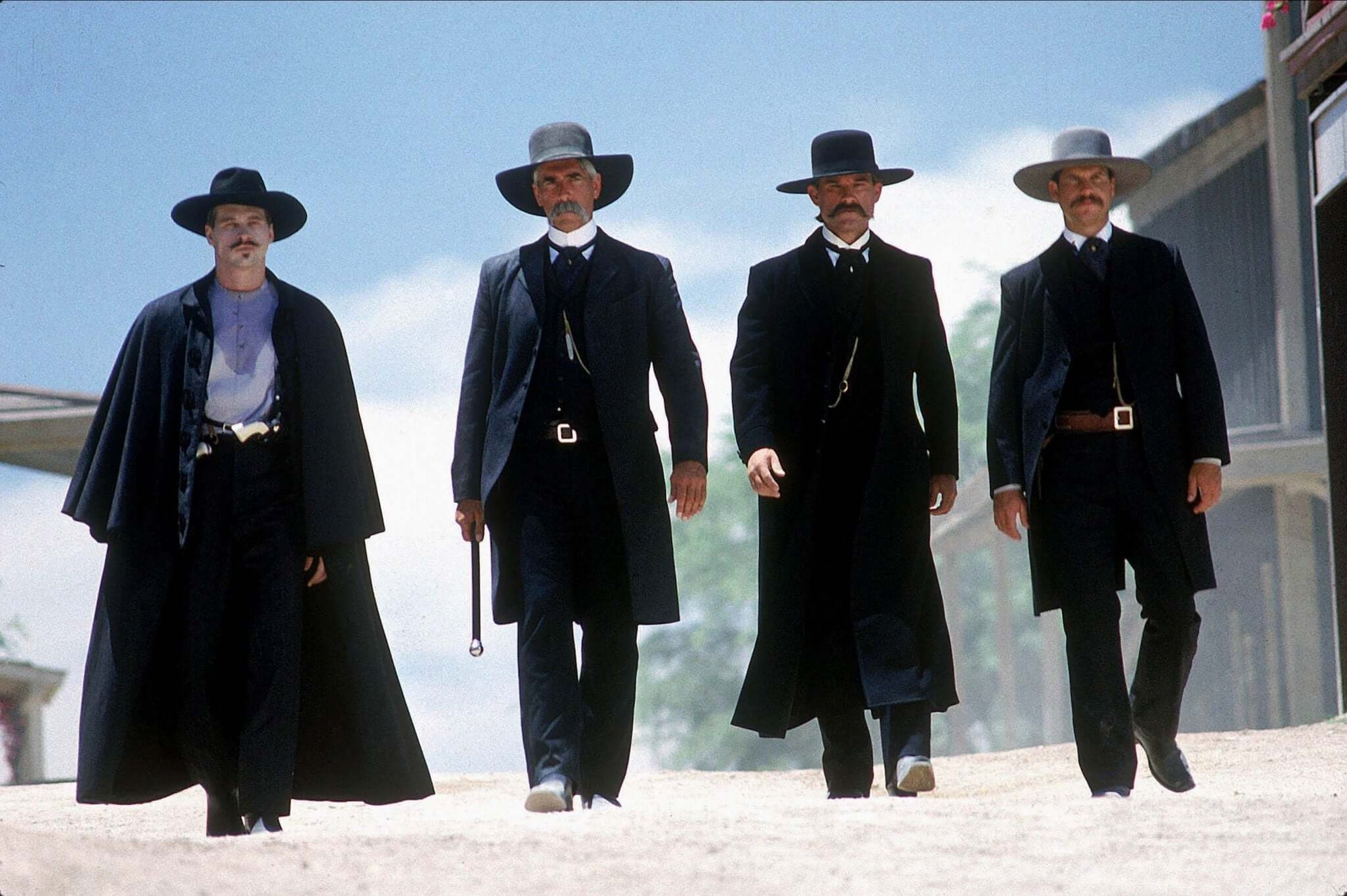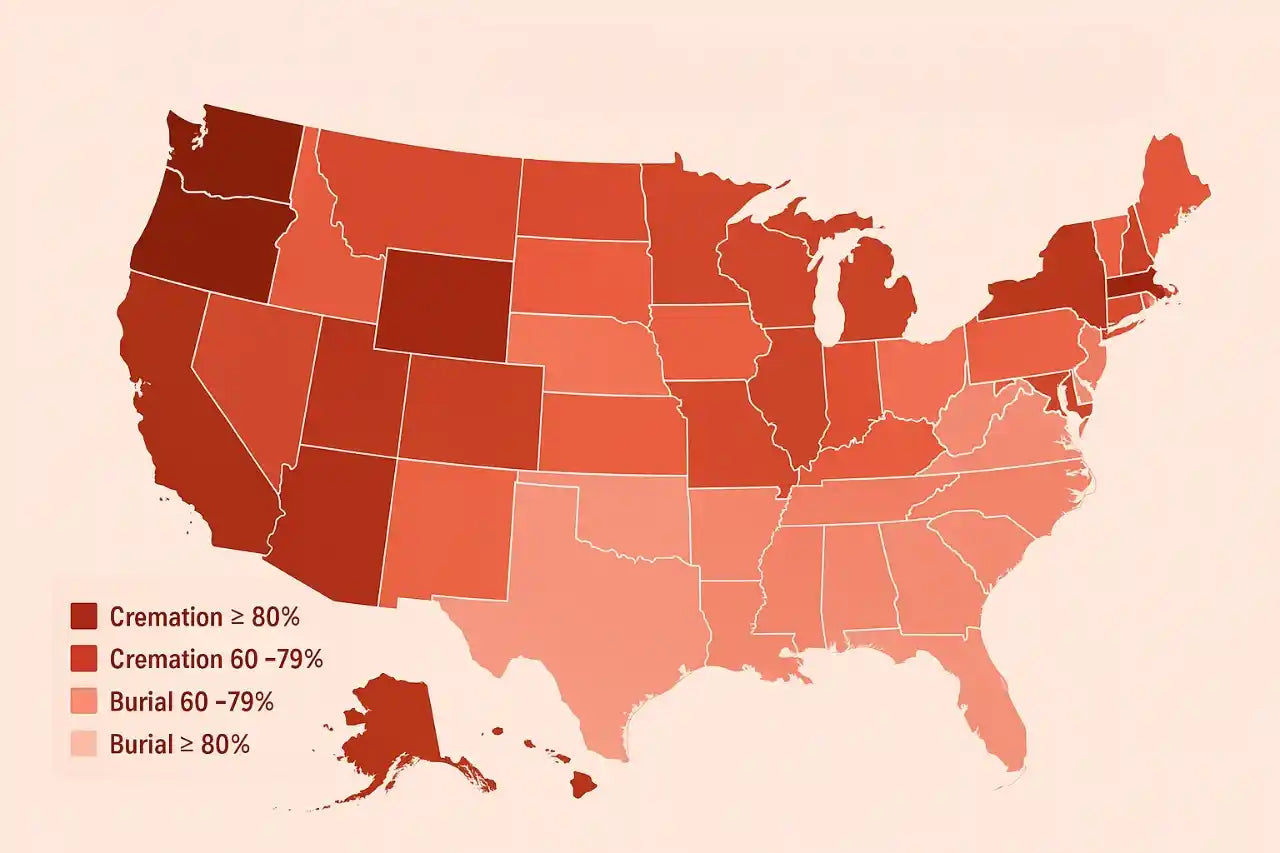Photo credit: Disney's Hollywood Pictures
John Henry "Doc" Holliday, born on August 14, 1851, in Griffin, Georgia, is one of the most intriguing and complex figures of the American Old West. Holliday's early life was marked by privilege and education. He was the son of a prominent family and enjoyed a comfortable upbringing. His mother, Alice Jane Holliday, passed away from tuberculosis when he was just 15, a disease that would later shape his destiny.
Holliday pursued a career in dentistry, earning his degree from the Pennsylvania College of Dental Surgery in 1872. He established a dental practice in Atlanta, but his career was cut short by his own diagnosis of tuberculosis. Advised by doctors to seek a drier climate to prolong his life, Holliday moved to the American Southwest.
After heading to the Wild West, Holliday's life took a dramatic turn. He became a gambler, a common profession for those seeking fortune at the time. His skills with cards were matched by his deadly proficiency with a gun. This combination earned him a reputation as a formidable and dangerous man. He roamed through Texas, New Mexico, and Arizona, often finding himself in trouble with the law and embroiled in violent confrontations.
Holliday's most significant and enduring relationship was with lawman Wyatt Earp. The two met in Texas and forged a close bond that would see them stand side by side in some of the West's most famous gunfights, including the legendary Gunfight at the O.K. Corral in Tombstone, Arizona. On October 26, 1881, this event solidified Holliday's place in Western folklore as a fearless and loyal friend.
Despite his notorious lifestyle, Holliday's health continued to deteriorate. He spent his final years in Colorado, succumbing to tuberculosis on November 8, 1887, at the age of 36. Doc Holliday's legacy as a gambler, gunfighter, and loyal companion endures, immortalized in countless books, films, and stories of the American West.
"I'll Be Your Huckleberry"
The phrase "I'll be your huckleberry" was reported to have been uttered by the real Holliday, though it was arguably made more famously by Val Kilmer's Doc Holliday in the 1993 movie Tombstone and has intrigued and puzzled audiences for years since. In 19th-century American vernacular, the term "huckleberry" had several connotations. One interpretation suggests that a "huckleberry" refers to a person who is the right fit for a particular job or challenge. This fits well with Doc Holliday's character, who was always ready to take on a challenge, especially in a gunfight. The phrase essentially means, "I'm the man for the job," showcasing Holliday's confidence and willingness to engage in conflict.
Another interpretation from that era considers "huckleberry" to imply someone insignificant or of little consequence. This meaning could be subtly mocking, as Holliday might be downplaying his significance while confidently stating his readiness to confront his adversary, Johnny Ringo. The dual meaning adds a layer of irony to the phrase, aligning with Holliday's sharp wit and sardonic demeanor.
The earliest literary references to the term "huckleberry" in this context appear in Mark Twain's The Adventures of Huckleberry Finn (1884), where the character Huckleberry Finn symbolizes an unassuming but essential presence in the story. This reflects the broader cultural use of the term during the time period.
The phrase "I'll be your huckleberry" was popularized in the modern era by Kilmer's portrayal of Holliday, but its origins are rooted in the vernacular of the Old West. The line's delivery in Tombstone has cemented it as an iconic quote, blending historical lexicography with cinematic flair.
The nuanced understanding of "huckleberry" adds depth to Holliday's character and the scene's impact. Whether interpreted as "I'm the right man for the job" or "I'm just a nobody," the phrase captures Holliday's complex persona—confident, clever, and ready for a challenge, making it a memorable part of Western folklore.
The Controversy: "Huckleberry" vs. "Huckle Bearer"
The phrase "I'll be your huckleberry" has sparked considerable debate, particularly regarding whether Kilmer, portraying Doc Holliday in Tombstone, was meant to say "I'm your hucklebearer" instead. This controversy hinges on historical lexicography and the nuances of 19th-century language.
The term "huckle bearer" purportedly refers to a pallbearer who carries a casket or coffin during a funeral. The "huckle" is said to be the handle on the coffin, making the "huckle bearer" the person who bears the handle. This interpretation suggests a morbid twist to Holliday's line, implying that he was ready to usher his opponent to their grave.
Despite the compelling nature of the "huckle bearer" interpretation, historical records and linguistic databases do not support its usage in 19th-century America. Extensive research into period literature, newspapers, and lexicons reveals no mention of "huckle bearer" in the context of a pallbearer. This absence casts doubt on the validity of this interpretation, suggesting it may be a modern invention rather than a historically accurate term.
Proponents of "huckle bearer" argue that it fits Holliday's dark and menacing persona, aligning with his readiness to confront and, if necessary, kill his adversary. This interpretation adds a grim finality to his challenge, reinforcing his deadly reputation.
On the other hand, "huckleberry" is a term documented in 19th-century vernacular, meaning someone suitable for a task. This aligns with Holliday's confident assertion that he is the right man to face Johnny Ringo. The dual meanings—both a fitting partner for a task and a slightly mocking term for someone insignificant—perfectly capture Holliday's wit and bravado.
The filmmakers of Tombstone and Val Kilmer himself have weighed in on this debate. In interviews and his autobiography I'm Your Huckleberry, Kilmer confirmed that the script intended the line to be "I'm your huckleberry," consistent with historical usage and the character's persona. Kilmer's delivery and the film's script emphasize this interpretation, aligning with the documented vernacular of the period. Indeed, Val Kilmer has repeatedly stated that "I'll be your huckleberry" was the intended line, chosen for its historical authenticity and its resonance with Doc Holliday's character. In his autobiography, Kilmer reflects on the phrase's impact and its enduring popularity, further solidifying its intended use in the film.
The script of Tombstone explicitly uses "I'm your huckleberry," reflecting the filmmakers' and screenwriters' research into period-specific language. This choice underscores their commitment to authenticity and character development.
Either Way, It Was a Role of a Lifetime
Kilmer's portrayal of Doc Holliday in the 1993 film Tombstone has immortalized the phrase "I'll be your huckleberry." In his aptly entitled I'm Your Huckleberry autobiography, Kilmer addresses this line directly, providing insights into its intended meaning and the widespread debate it has sparked. The portrayal is widely regarded as one of the standout performances in modern Western cinema. Kilmer's nuanced performance brought depth and complexity to the character of Holliday, a gunslinger and gambler battling tuberculosis while navigating a life of violence and loyalty.
Kilmer’s Holliday is charismatic and multifaceted, combining charm, wit, and a palpable sense of fatalism. His portrayal captures Holliday's sharp intellect and sardonic humor, which is perfectly exemplified in the delivery of the iconic line, "I'll be your huckleberry." This phrase, delivered in a near whisper during a tense standoff with Johnny Ringo, epitomizes Holliday's readiness to confront danger head-on and his confidence in his abilities.
The audience's reception to Kilmer's performance was overwhelmingly positive. Critics and viewers alike praised his ability to bring historical authenticity and emotional depth to the role. Roger Ebert, for instance, lauded Kilmer’s portrayal as the best part of Tombstone, highlighting how he made Holliday both enigmatic and endearing. Kilmer's dedication to the role, including adopting a Southern drawl and studying Holliday's history, added a layer of credibility that resonated strongly with audiences.
Kilmer's performance and the delivery of "I'll be your huckleberry" have left a lasting legacy in popular culture. The line has been referenced and parodied in various media, including television shows, music, and internet memes. It has become a shorthand for cool, collected confidence and a willingness to face challenges—a testament to Kilmer's impact on the role.
The legacy of Kilmer’s portrayal is evident in the continued cultural references to both the character and the line. The phrase has appeared in shows like The Simpsons and Family Guy, songs, and t-shirts demonstrating its wide-reaching influence. Kilmer himself has reflected on the line's enduring popularity, noting in interviews and his autobiography how it has become a defining moment of his career.
Kilmer confirms that the phrase "I'm your huckleberry" was deliberately chosen for its historical authenticity and relevance to the character of Doc Holliday. The line was meant to signify Holliday's readiness to take on any challenge, fitting the phrase's 19th-century meaning of being the right person for a job or task. This aligns with Holliday's persona as confident and always up for a duel, which is exemplified in his encounters with Johnny Ringo in the film.
Addressing the persistent rumor that the line might have been "I'm your huckle bearer"—a supposed reference to a pallbearer—Kilmer dismisses this interpretation in his memoir. He clarifies that there is no historical basis for the term "huckle bearer" in the context of the 19th century. Instead, Kilmer emphasizes that the script's use of "huckleberry" was intentional and accurately reflects the vernacular of the time.
Kilmer's statements are backed by the movie's screenplay and the historical research done by the filmmakers. The script explicitly uses "I'm your huckleberry," and this phrasing was carefully chosen to resonate with historical accuracy and the character's essence. Kilmer's commitment to this line is evident as he titled his memoir after it, underscoring its significance and impact on his career.
The phrase continues to inspire and appear in various forms of media, including songs, books, and television shows, where it is often used to evoke a sense of daring and capability. This enduring legacy highlights the phrase's powerful linguistic and cultural resonance, bridging historical context and modern interpretation. However, the ideal version of the phrase is undeniably "I'll be your huckleberry." This interpretation is supported by historical evidence, linguistic analysis, and direct statements from Val Kilmer and the filmmakers of Tombstone. The phrase fits the vernacular of the 19th century and aligns perfectly with the character of Doc Holliday—confident, daring, and ever-ready for a challenge. This phrase continues to resonate as a symbol of steadfast readiness and cultural wit, making it a fitting tribute to the legacy of both Doc Holliday and Val Kilmer's unforgettable performance.


